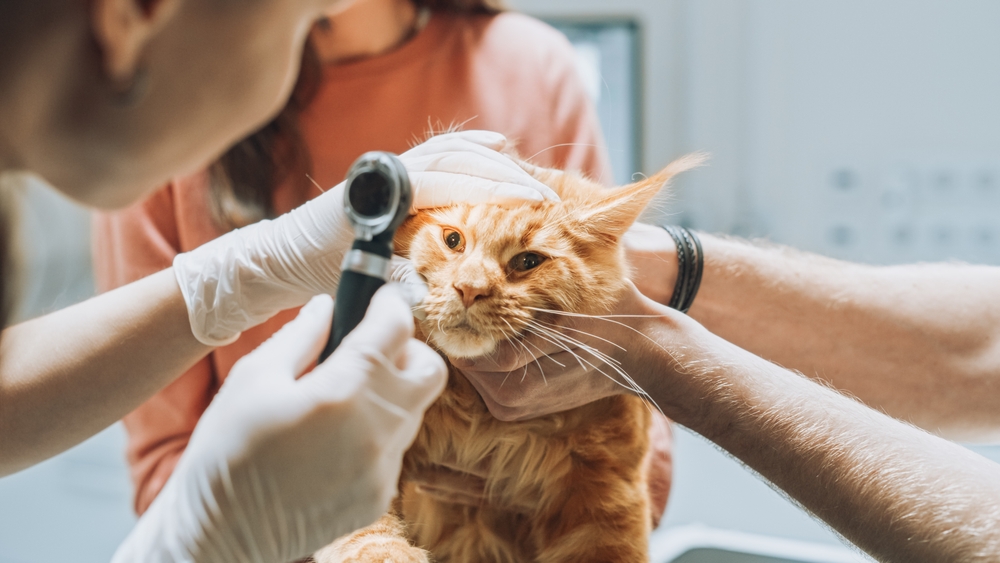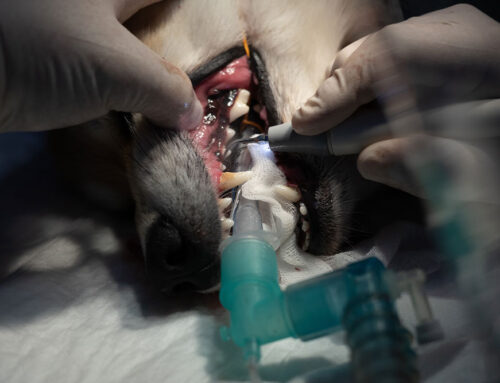Eyes are highly complex body structures with specialized tissues and functions, and their complexity means that many different eye diseases and conditions are possible. A pet’s vision determines how they navigate and interact with the world, and although blind pets can have a good quality of life, pet owners consider that preserving their pet’s vision is often of utmost importance. Maintaining animal eye health can be difficult for a general practitioner with limited ophthalmology training, but a VESPECON specialist consultation can help. Here are some of the ways that an ophthalmologist consultation can improve patient care.
#1: Manage more ophthalmology cases in-house
The most common eye diseases and conditions can be managed at the primary care level, but you may feel stumped if your go-to medication fails or a pet’s condition worsens, despite appropriate therapy. You know you could try other medications or treatment strategies, but when should you switch, and which strategy should you choose? A veterinary ophthalmologist can provide you with simple tips and solutions to better manage basic ophthalmic diseases in-house—which benefits your practice and your client.
Dry eye, juvenile or herpetic conjunctivitis syndromes, and corneal ulcers are some of the most commonly referred cases, but they are often easily managed in-clinic with some therapy tweaking, and a commitment to longer treatment courses and more rechecks than you initially expected.
#2: Save clients money and time
Most clients would prefer that their primary veterinarian manage their pet’s condition whenever possible. Although you should still offer a referral when you deem appropriate, ophthalmic consultations can give clients another option that allows you to better manage their pet’s condition with fewer visits and less financial investment than an in-person referral. You can also keep more clients by offering this option sooner—studies show that a frustrated client with a sick pet will leave the practice for another opinion after three failed attempts to resolve their pet’s problem.
#3: Triage ophthalmic emergencies more effectively
Eye emergencies can be tricky for the general practitioner, because a pet’s pain level and the pet owner’s panic level can be disproportionate to the actual problem. Different breeds and individuals vary in their corneal sensitivity and acute or chronic eye pain tolerance, making the diagnostic process more difficult. Consulting a veterinary ophthalmologist while you evaluate an emergent case will ensure you perform and interpret the correct tests to guide your treatment decisions, help you stabilize the patient, and determine whether immediate ophthalmic emergency care is required.
#4: Identify serious systemic diseases sooner
Many systemic diseases present early as an isolated eye issue, but then progress to affect other body systems. If you see a pet you suspect has uveitis, a retinal lesion, or a strange presentation you can’t quite put your finger on, you should list systemic disease as your top rule-out. Veterinary ophthalmologists diagnose and treat these diseases daily, and are a good resource when you suspect a problem that extends beyond the eye. The consulting ophthalmologist can identify “red flag” signs you might otherwise dismiss, and direct your diagnostic process.
#5: Counsel new pet owners about breed-specific issues
The more frequently you work with a consulting ophthalmologist, the better you’ll identify and treat breed-related eye conditions in pets. As many brachycephalic breeds—particularly the French bulldog—continue to skyrocket in popularity, counseling prospective or new owners about eye conditions and their treatment has become crucially important. Clients are more likely to save money or purchase insurance if they know up front that their pet could require corrective surgery or life-long treatment, and they will catch problems sooner and bring them to your attention when they know what to look for.
How VESPECON Works

We use a virtual consulting platform, so sharing images and real-time video of your patient is easy and seamless. Our consulting ophthalmologists work closely with you to provide in-the-moment and ongoing case management, and can also collaborate with our other multidisciplinary team members. When an in-person referral or emergency visit is in order, we’ll coordinate with one of our local network providers to promptly get your patient the care they need.
Are you ready to experience the benefits of ophthalmic consultations through VESPECON and see vast improvements in your patient care and client satisfaction? Contact us or visit our website to learn more about our services and sign up to get started.







Leave A Comment